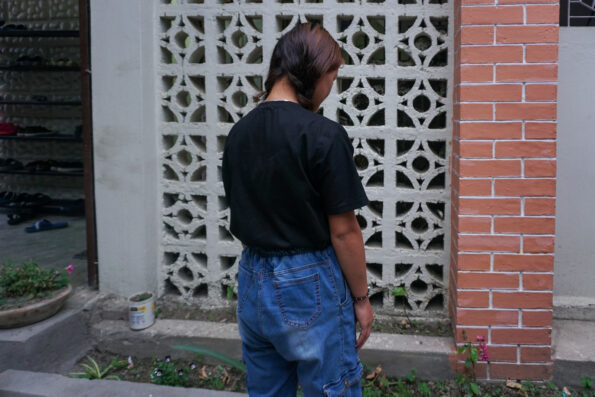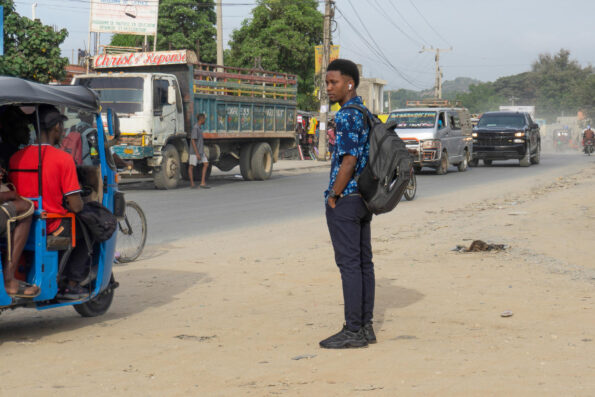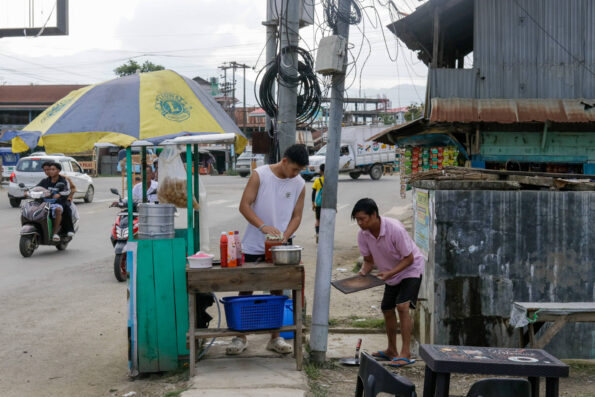
Patricia Lindrio, GPJ Uganda
James Jada and Robert Asabazi harvest ground nuts in the Pagirinya Refugee Settlement.
ADJUMANI AND MOYO DISTRICTS, UGANDA — Every dry season, James Jada waits for his father to return with food from the country they fled.
The 16-year-old and his family left neighboring South Sudan in 2016 when armed conflict between the Sudan People’s Liberation Army and the government forced the family out. They’ve spent the last four years trying to grow sweet potatoes, nuts and beans on a small patch of land in northwest Uganda, known as the Pagirinya Refugee Settlement.
It hasn’t been enough. So Jada’s father makes the treacherous trip back to South Sudan every year to find farmland and grow the crops this arid region struggles to sustain.
“I worry about his safety, especially on the journey back,” says Jada, whose father has left for the season. “It is common for those carrying food and other goods to be attacked and looted.”
Jada’s father represents one of thousands from surrounding settlements who risk their lives by diving back into violent territory. About half of the more than 160,000 refugees at nearby Palorinya Refugee Settlement leave relatives behind for at least five months to tend to farmland in South Sudan, says Alison Sakari, a refugee welfare committee leader there.



Such trips weren’t always necessary. Reductions in land plots and tensions about compensation have eroded the amiability that once existed between refugees and their hosts — and led to riskier efforts by the displaced to stake out a livelihood.
South Sudan, the world’s newest country, gained independence from Sudan in 2011 after a decades-long civil war. But infighting between top politicians led to a resurgence of violence in 2013 and triggered the creation of new armed groups. Feuding leaders agreed last week to form a unity government and try to build a fragile peace. But they face a severe challenge improving humanitarian conditions in one of the world’s poorest countries.
More than 2 million people have fled South Sudan, according to the United Nations. Over one-third of those sought refuge in Uganda.
Before 2016, the Ugandan government gave refugee families settlement plots between 600 square meters and 900 square meters (one-seventh of an acre to nearly one-quarter acre). They received an additional 2,500 square meters (two-thirds of an acre) of land for cultivation.
With increasing demand and dwindling land resources, the government reduced the allotment to a single 900-square-meter plot for both settlement and cultivation, roughly four times the size of a tennis court. Sakari says the plot doesn’t provide enough space for a family to make a living.
While those in the settlements each receive a monthly food stipend of maize, beans and cooking oil, they say the ration only lasts two weeks — leaving them dependent on the land.
And even that land allotment may disappear. Many of the distributed plots come from local landowners who granted their fields to the government with the understanding officials would invest in the area. Only now, frustrated by inaction, some former owners demand the land back.
David Vuyaya, a landowner in the Pagirinya settlement, handed over seven acres (more than 28,000 square meters) of his land four years ago.
The government “talked about money to educate our children, about a grinding mill and also construction of permanent houses for landlords,” he says. Vuyaya has seen few of those things. “If nothing is done by the end of the year, we need to talk about charging refugees rent. The land should not be free.”
David Wangwe, the government representative for Palorinya settlement, argues the landowners made assumptions about compensation. “The host communities had a lot of expectations when the program started,” he says. “They think we gave them a raw deal.”
He points to projects the government is working on with landowners to improve their livelihoods, including assistance with crop growth. But he acknowledges resources have dwindled.
Donors pulled funding from Uganda in 2018 after the United Nations uncovered suspicions of mismanagement, fraud and corruption in the country’s humanitarian assistance program for refugees, according to a UN audit.
The government received less than two-thirds of expected international funding, Wangwe says, leaving the government $570 million short. The prime minister’s office declined to comment.
Some families agree to pay land fees directly to landowners, although they often struggle to afford the cost. While people with refugee status are permitted to seek work in Uganda, few can find stable employment due to language barriers and educational limits.
Sakari, the Palorinya settlement leader, says a landowner gave him a piece of land on the condition he pay an “appreciation fee.” He can’t travel to South Sudan to grow crops, he says, because he needs to stay and represent the community. If Sakari doesn’t come up with the money, he may lose the land.
Then returning to South Sudan, for him and many others, would no longer feel like a choice.







